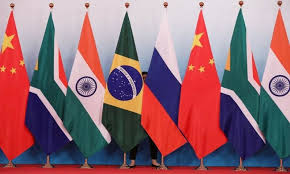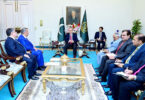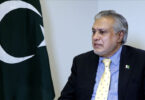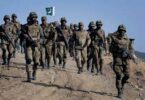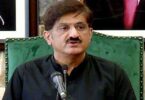Inam Ullah
With the admission of new members, BRICS is to be more than double. This expansion was announced at the organization’s 15th annual summit in Johannesburg; South Africa on last Thursday.
The new member countries that include Iran, Saudi Arabia, Egypt, Argentina, the UAE and Ethiopia will join the current five members – Brazil, Russia, India, China and South Africa – from January 1st of the coming year. This was alluded by many experts and leaders as a “historic” development in the global affairs. Chinese President Xi as a leading advocate of the new membership, finally, presents an expanded BRICS as an alternative for the global south to have a robust expression in the world affairs.
It is unclear that how the expansion would significantly enhance the group’s clout on the global stage. However, this move, for the moment, is more symbolic than anything as it is an indication of wide-ranging Global South’s support for a recalibration of the global order. It is, therefore, considered as an attempt to reshape the global world order and provide a counterweight to the US and its allies.
For China and Russia, the membership of the new countries is part of a long-running, and often more disgruntled, effort to turn a largely symbolic grouping into a vehicle for remolding international trade and finance structures to protect their interests against future sanctions from the United States and its allies.
Sanctions targeting Russia over the war in Ukraine have added urgency to China’s effort to create alternative global financial structures and supply chains resilient to Western disruption. It is part of the long-term bet that China has made. They think relations with the West are going to deteriorate and the future of relations with the world will be rooted in the developing world, so they want to find ways to institutionalize and entrench resilient systems.
Although India and Brazil had reservations about the growing anti US agenda but China and Russia have found some developing nations more receptive to their concerns about American dominance, which is part of the motivation for more members. Additionally, the developing world has always been central to Beijing’s efforts to remake multilateral organizations to protect its interests.
Souring relations with the United States and Europe have prompted Xi to double down on a strategy of currying favor in emerging markets. Some Chinese scholars say that Beijing has greater space to maneuver in part because Russia’s invasion of Ukraine has distracted the United States from engagement with developing nations. The war and China-US trade tensions mean that Washington has shifted its focus to the Group of Seven and is less interested in the Group of 20, creating an opportunity for BRICS to become a better platform for developing countries.
Many developing countries are unsatisfied with the Western dominance in the economic realm. The list of grievances of the global south is lengthy but the main headers include the abusive trade practices by the West, punishing sanctions regimes, perceived neglect of the development needs of poorer nations and the Western domination of international bodies such as the United Nations, the International Monetary Fund and the World Bank.
Amid widespread dissatisfaction with the prevailing world order, the pledge of BRICS nations to make the grouping a leading champion of the “Global South” has found significance. In the forthcoming, the BRICS leaders left the door open for the enlargement of the organization as dozens more countries voiced interest in joining a grouping they hope can level the global playing field. Whatever resistance there may be BRICS, as a positive and stable force for good-will, will continue to grow.
To sum it up, the expansion adds economic heft to BRICS, whose current members are China, the world’s second largest economy, as well as Brazil, Russia, India and South Africa. It could also amplify its declared ambition to become a champion of the Global South. However, long-standing tensions could linger between members who want to forge the grouping into a counterweight to the West – notably China, Russia and now Iran – and those that continue to nurture close ties to the United States and Europe such as Brazil and India.
(The writer is M. Phil graduate in IR from National Defence University, Islamabad)

